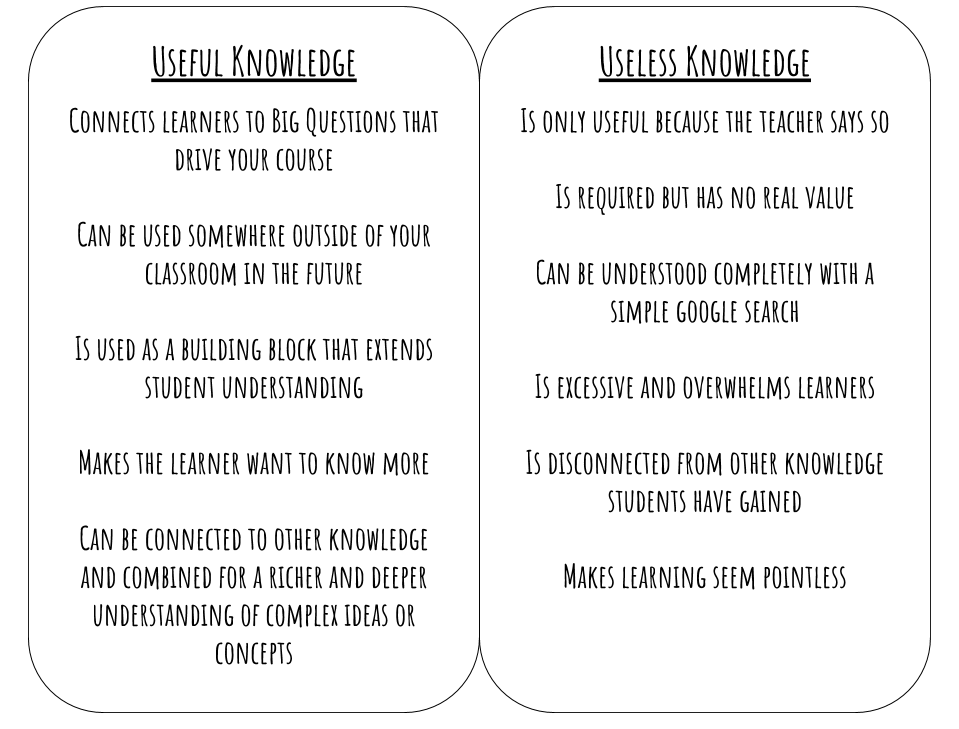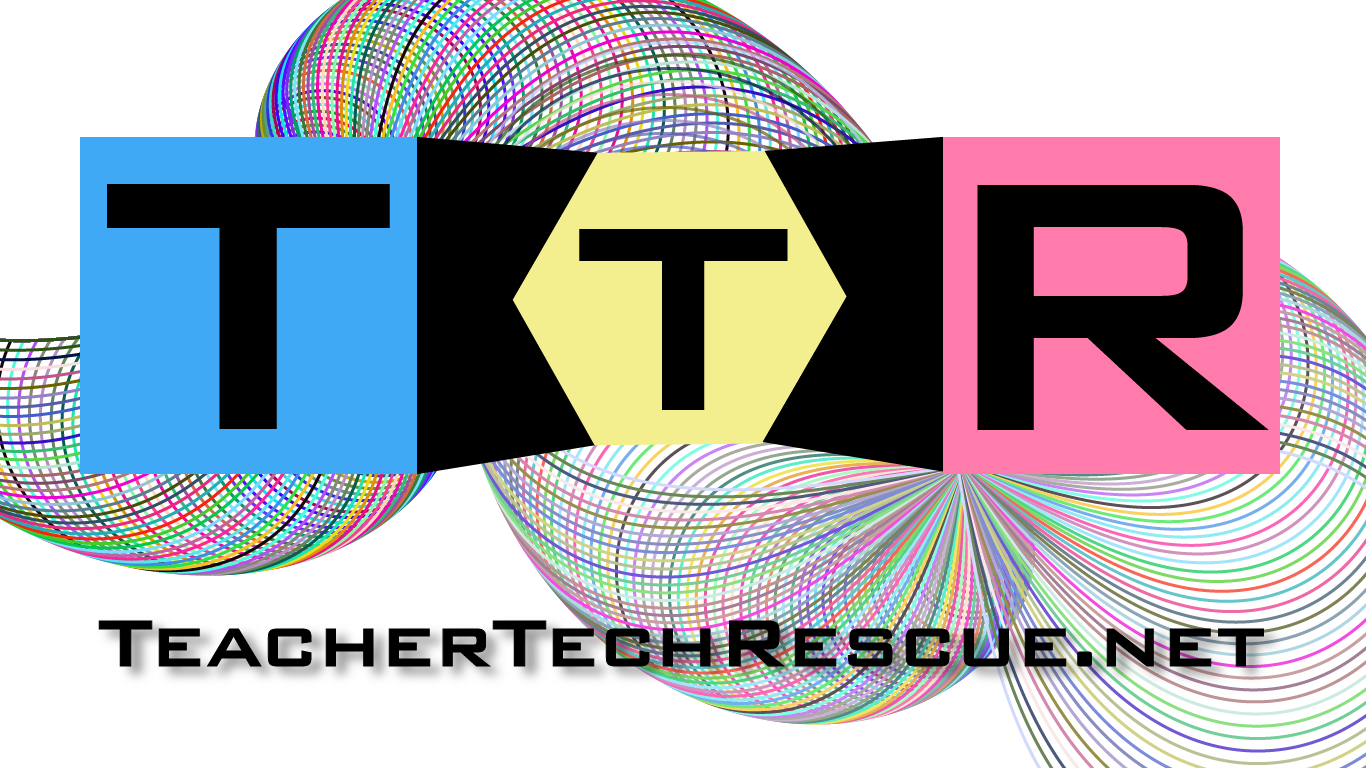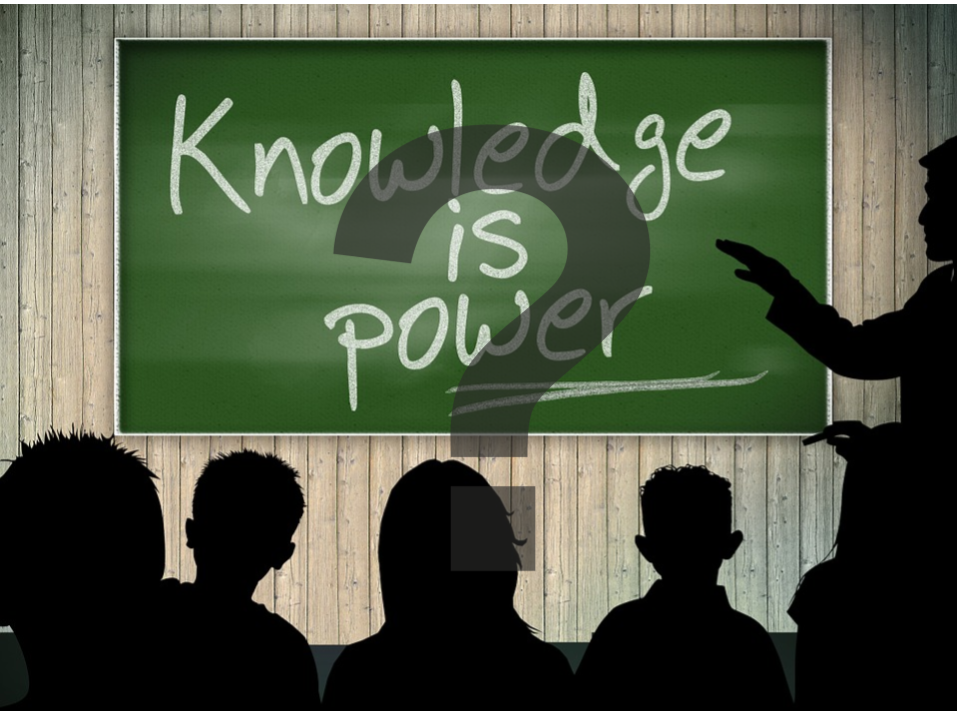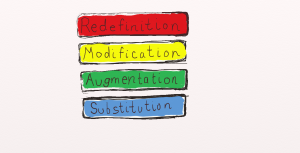Knowledge is Power! That was the 90’s slogan many of us remember being bombarded with as children. It always seemed so obviously true. However, a recent tweet from an admired professional inspired the question in the title. As I write this, I fully understand that I am touching on a heavily debated issue and my stance on knowledge in education is not so much a soap box speech or rally cry as it is a disambiguation of the complex and evolving meaning to the word knowledge and the role it plays in modern education.
Is Knowledge Still Power?
Some teachers might find this too obvious a question… Of course we want to teach knowledge to our kids, right? Yet, teachers tend to find themselves asking this question in a more thoughtful way as they realize that the smartphones in our pockets contain all of the knowledge of the Ancient Library of Alexandria (and quite a bit more). We might be wasting our students’ time forcing them to learn facts or what some educators refer to as trivia knowledge, essentially insignificant information that aims to improve test scores, address standards, but has no substantial educational or applicable real world value (unless you get on a trivia show).
With all of the tech I use in my classroom, Google being a major driver as a search engine as well as tool suite, it may come as a surprise that I do in fact teach knowledge. Some teachers believe this practice in pedagogy is antiquated and needs to be discontinued, but what will it cost students if what used to be requisite knowledge is now lost? As a teacher, are you actively thinking about what kind of knowledge is still useful in the 21st century?
Before I move forward, let me be clear, I think long and hard about what purpose my class serves and the content I teach. However, I am not of the mindset that we should be teaching meaningless, seemingly insignificant disconnected information to our students. Knowledge, in the realm of education, has somehow become synonymous with useless information and the inflammatory debate over weather we should teach knowledge continues to burn. The definition of knowledge today must extend beyond the dictionary definition and still further beyond the understanding of the word as it was used when I was a K-12 student in the 80s and 90s.
Definition of knowledge from Merriam-Webster:
-the fact or condition of knowing something with familiarity gained through experience or association
Here is a more suitable definition that I am advocating we start to embrace as educators:
Knowledge is rapidly accessible stored information that we own, like data, and use to make richer and deeper connections to larger concepts and bigger ideas.
Although the processor in my pocket might be faster than my brain, and the Google search may yield more detailed information, knowledge, as I use it when reading, thinking and developing connection, is in fact essential to the process of learning. As I was recently reading a biography of Marco Polo, I came across a paragraph that required knowledge of a half dozen locations, a few historical periods and eras in addition to notorious historical figures. In order to understand this paragraph, knowledge of these many details becomes a prerequisite. Yes, a reader could look up each of those items in a google search, but having to stop a dozen times throughout a single paragraph to search what ought to be common knowledge of geography and history is not acceptable and will certainly slow down learners as they take more advanced high school and college classes or prepare for the real world. Therefore, knowledge, as a building block of education, is in fact still necessary if we are preparing students for the future.
The bigger question is, what kind of knowledge should we avoid teaching in the classroom, and what knowledge still remains imperative to the learning process of making connections? That is, after all, what we do in our classroom every day. We connect the data stored in our students heads to more data, that hopefully grows their understanding of more complex ideas, concepts and processes.
Here is an overview that might help with the disambiguation of the word knowledge, and the role it plays in modern education.

Only you can decide how to determine what knowledge you value and still find value in teaching! For instance, I can think of quite a few nuggets of information I teach in my classes that may in fact be accessible through a Google Search, but there are more reasons on the left side that justify why I teach those easily searchable facts, concepts or ideas, so I can wholeheartedly justify them as being necessary for my course. Be purposeful, think hard about what you are trying to point to with the knowledge you expect students to gain as you teach, and as always, make it a worthwhile experience!
Please take a moment to subscribe to my blog.
What kind of knowledge do you teach? I would love to hear from you on twitter: @KevinWhiteSD
Thanks for reading!


